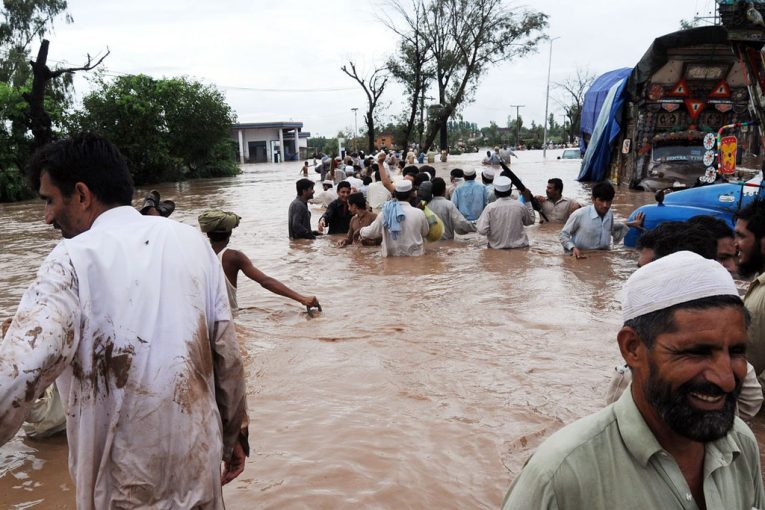
Lahore: Media Foundation 360, in consultation with climate experts, disaster management officials and NGOs, developed and released a ‘Food Resilience Plan’ under a project with the US Consulate Lahore.
The plan will be shared with disaster management authorities, district management officials, rescue workers and NGOs working in the flood-hit areas across Pakistan.
According to the document, Pakistan is confronting an escalating threat of devastating floods as the frequency and intensity of extreme weather events, triggered by climate change, continue to rise. The country has endured numerous catastrophic floods throughout its history, with the most recent one in 2022 causing havoc and destruction. These floods have resulted in significant loss of life, displacement of communities, and extensive damage to infrastructure and agriculture. The vulnerability of Pakistan to floods is influenced by various factors, including its unique geographic features such as proximity to rivers and low-lying areas. Monsoon rains, which are an integral part of the region’s climate pattern, further contribute to the regular occurrence of flooding. However, the impact of these natural hazards is now magnified by the effects of climate change, exacerbating flood risks in Pakistan. One of the key drivers intensifying flood risk is the changing climate. As global temperatures rise, the atmosphere holds more moisture, leading to heavier rainfall and increased precipitation. Additionally, the accelerated melting of glaciers in the northern mountainous regions, a consequence of global warming, results in a larger volume of water flowing into rivers, further heightening the risk of flooding. In addition to climate-related factors, human activities play a significant role in exacerbating flood risk in Pakistan.
Deforestation, urbanization, and poor land management practices all contribute to soil erosion, reducing water absorption capacity and increasing the likelihood and severity of flooding. Encroachment on riverbeds and insufficient flood control infrastructure compound the impact of floods on communities. Furthermore, flash floods, also known as hill or mountain torrent floods, pose an additional threat to hilly or mountainous areas. These floods can occur suddenly over a short period, leaving little time for affected communities to prepare or evacuate. Recognizing the gravity of the situation, the Pakistani government, in collaboration with international partners, is working diligently to enhance flood management and disaster response capabilities. A comprehensive approach that includes investment in early warning systems, improved urban planning, reforestation efforts, and the development of robust infrastructure is crucial to mitigate the risk and impact of future floods. The devastating floods experienced in Pakistan serve as a stark reminder of the urgent need for global action to address climate change. As extreme weather events continue to intensify worldwide, it is imperative that nations unite to reduce greenhouse gas emissions, transition to renewable energy sources, and foster climate resilience to protect vulnerable communities and prevent further disasters.
Booklet PDF links:




